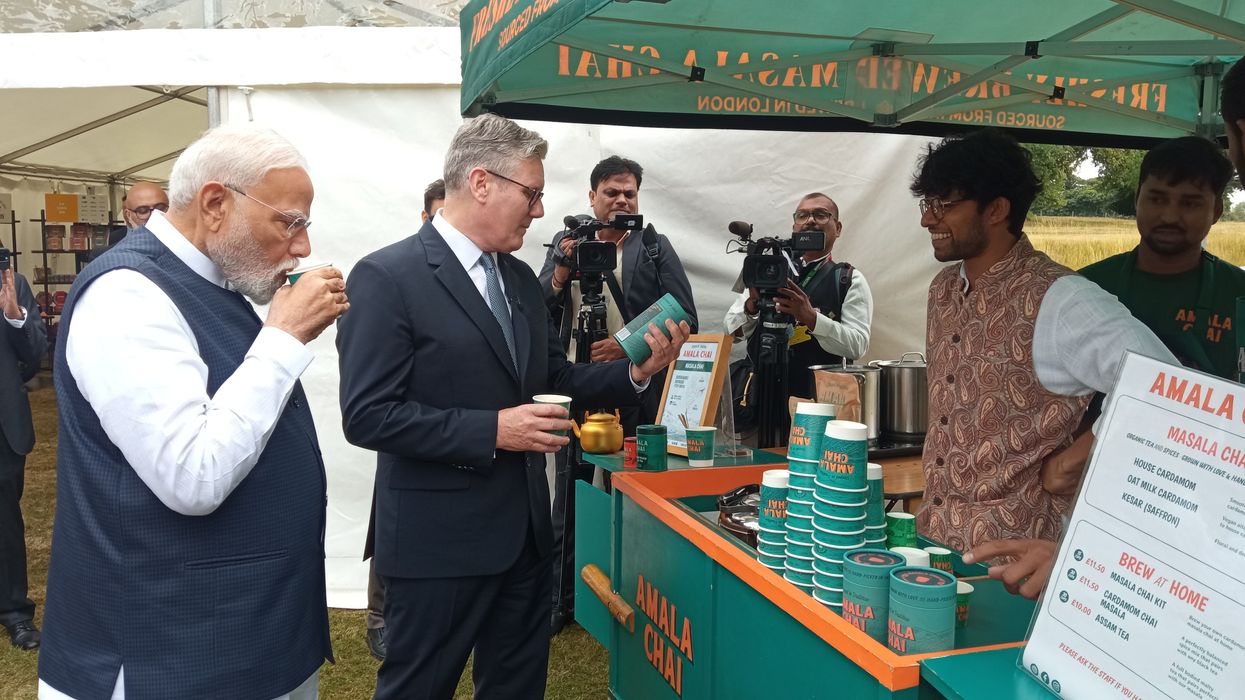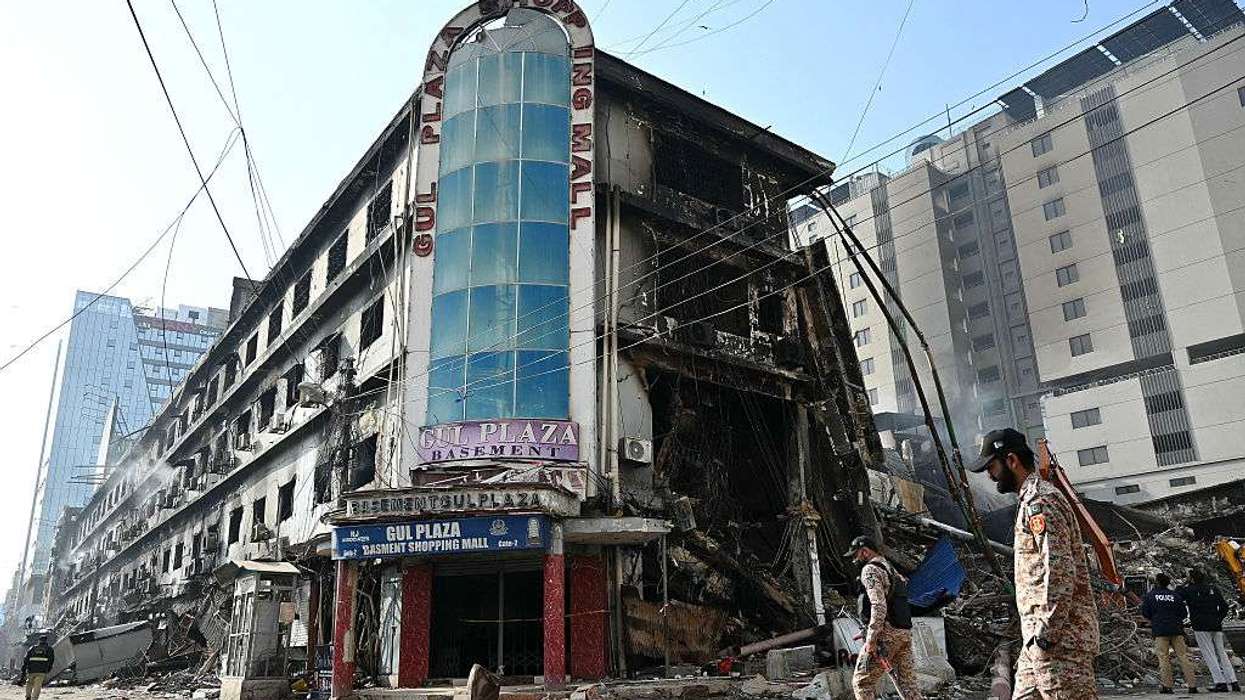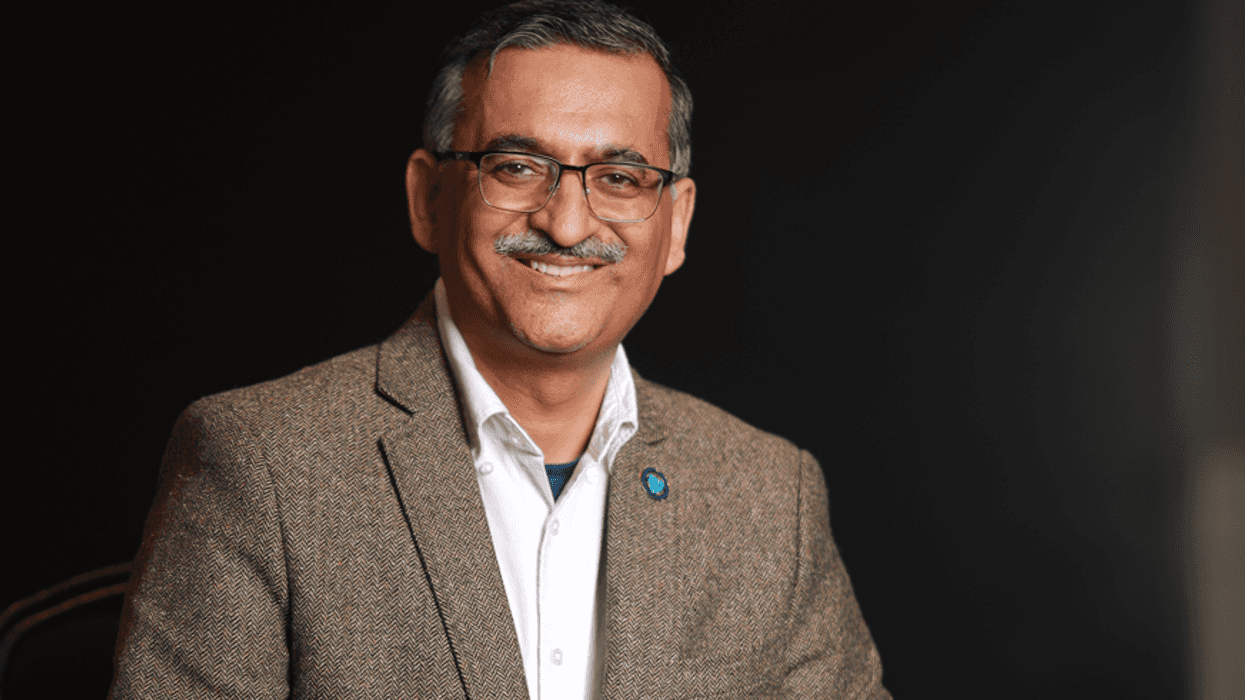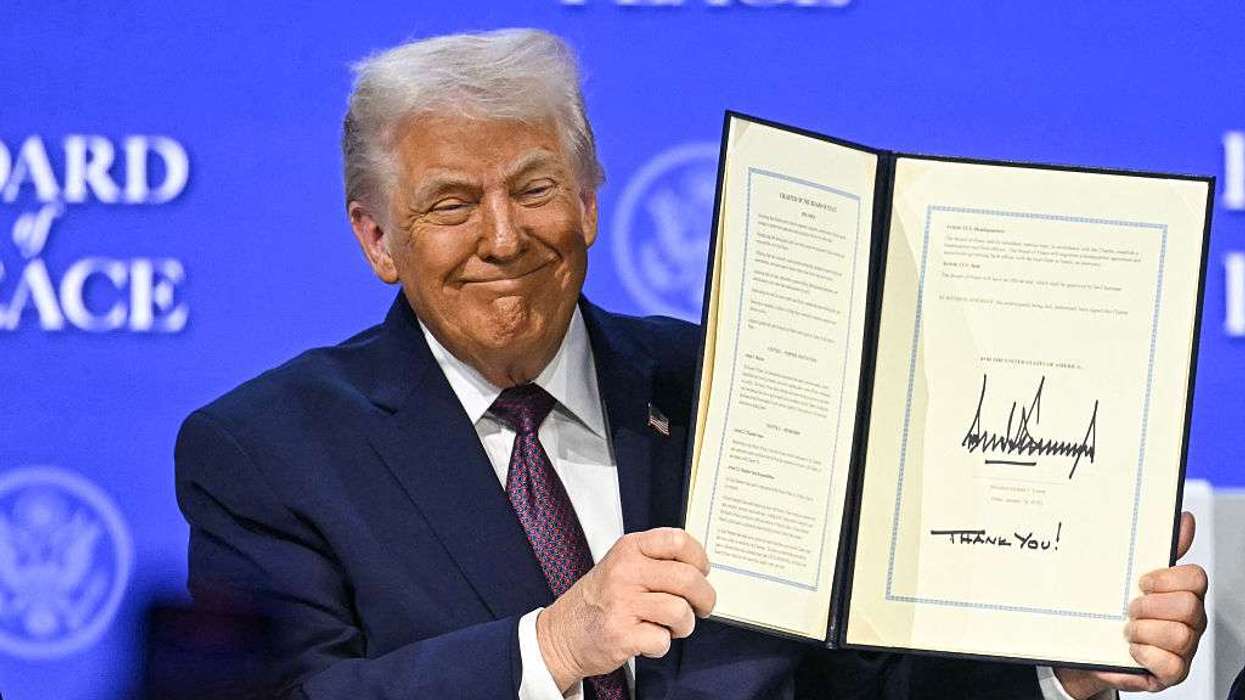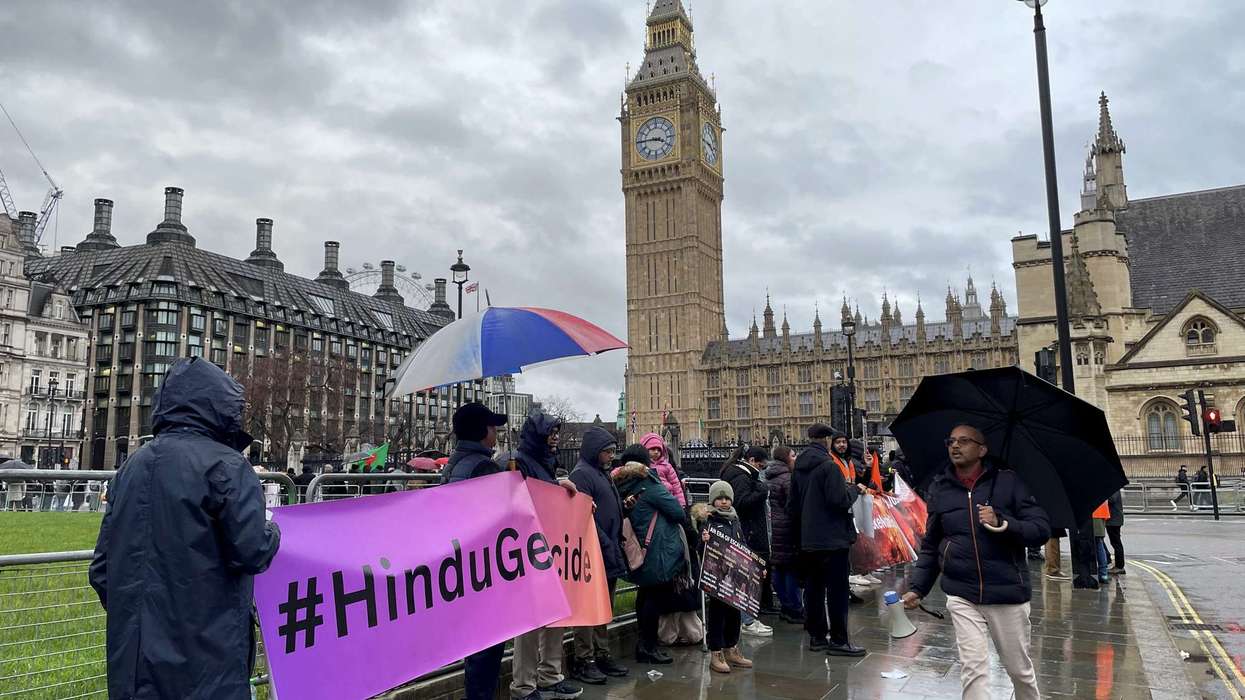AS AKHIL PATEL handed over a cup of masala chai to Narendra Modi in the grounds of Chequers on Thursday (24), he cheekily told the Indian prime minister: “From one chaiwalla to another!”
That quip produced one of the lighter moments on an “historic” day when Modi and the British prime minister, Sir Keir Starmer, formally agreed a free trade agreement (FTA) between India and the UK.
Taking an hour off from their talks on trade and business, they toured a number of businesses – Norton Motorcycles, Sainsbury’s, Purejewels, Agratas (a Tata enterprise), the Premier League, Oxford Nanopore Technologies, Spice Kitchen, and Beauty and Wellness products at Kama Ayurveda, for example – who had set up inside a tent and were displaying their wares to the two prime ministers.
They also watched children playing cricket (Modi asked if they knew the location of the world’s largest cricket stadium and told that it was in Ahmedabad and housed 125,000).
Prominent personalities from the UK and India hovered in the background as Modi and Starmer did their tour of the tent. They included Sunil Mittal (Bharti Enterprises); Ajay Piramal (Piramal Group); Sharan Pasricha (Ennismore); Anish Shah (Mahindra & Mahindra); TS Anil (Monzo); Bill Winters (Standard Chartered); Baroness Shriti Vadera (Prudential), Sharon Hague (Pearson), Parminder Kholi (Shell), Nik Jhangiani (Diageo); Anil Agarwal (Vedanta); John Harrison (Airbus), Chandrajit Banerjee, director-general of the Confederation of Indian Industry; and peers Jitesh Gadhia and Karan Bilimoria.
First stop, though, was Amala Chai, which 31-year-old Patel later told Eastern Eye he had setup six and a half years ago and which he now ran from stalls in London in King’s Cross and Hackney.
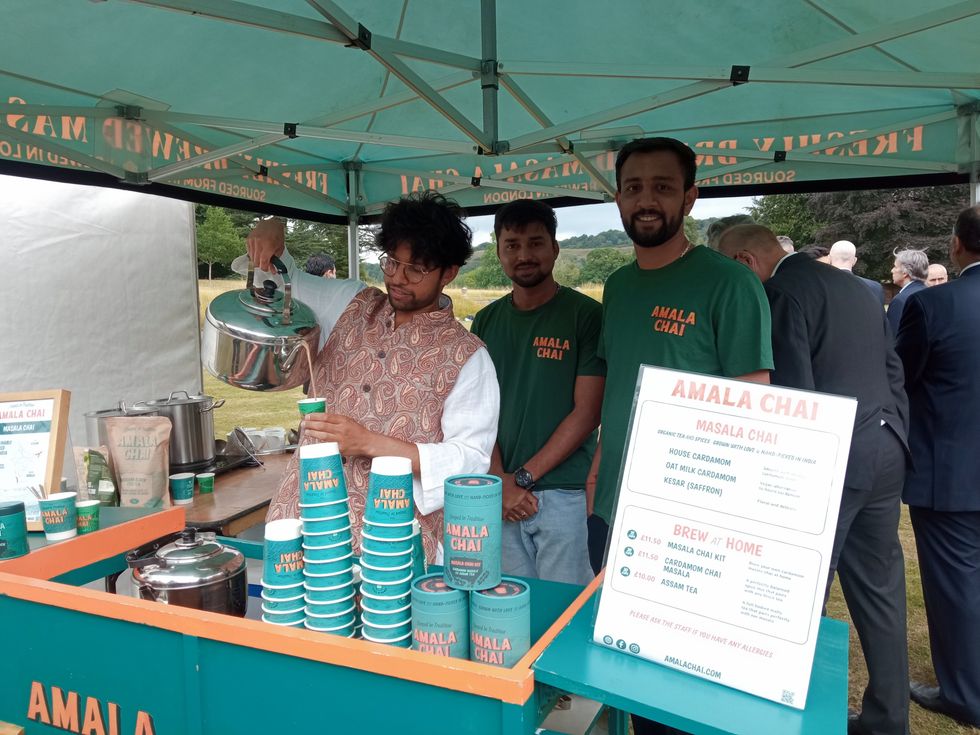
Modi certainly appeared to relish the masala chai.
Legend has it that Modi has an instinctive understanding of the common man because instead of being educated an at elite institution, he began life by serving chai as a youth at a train station in his native state of Gujarat.
Patel said: “I am Gujarati and I was born in London.”
A cup of masala chai would normally cost £3.85.
The tea comes from farms in Assam, the spices that go into the chai – cardamom, ginger, nutmeg and black pepper– from Kerala. Patel offers the option of cow’s or oat milk.
How come he was picked to pitch to Modi and Starmer alongside much bigger businesses?
Patel wasn’t quite sure but it seems officials at 10, Downing Street and in the Foreign Office did a bit of background research on Modi’s origins.
“They just asked me,” confided Patel.
- YouTube www.youtube.com
He didn’t think the FTA would affect him very much but the quip from the cheeky chappie has certainly gone viral.
He claimed: “It just came out.”
His website tells of how he came to set up Amala Chai in his own words: “Back in 2018, a trip to the Indian Himalayas, Ladakh, changed everything.
“I’d grown up drinking masala chai at home — it was always part of our family life. But on this trip, I saw it in a new light — not just a drink, but a ritual. A space where people from all walks of life came together.
“It didn’t matter whether it was poured by a streetside chaiwalla or shared at a family gathering — each cup carried warmth, community, and care. And of course, it tasted absolutely delicious.
“Back in London, I searched everywhere for a proper cup of real masala chai. But all I found were sugary syrups and watered-down versions — a far cry from the chai I’d grown up with. So, fuelled by my grandma’s age-old recipes, I opened a small stall on Brick Lane. We brewed every cup fresh, on the stove — just as it should be. That first stall created a real buzz. It was clear tea lovers here were craving something more: authentic, traditional masala chai. And so, Amala Chai was born.
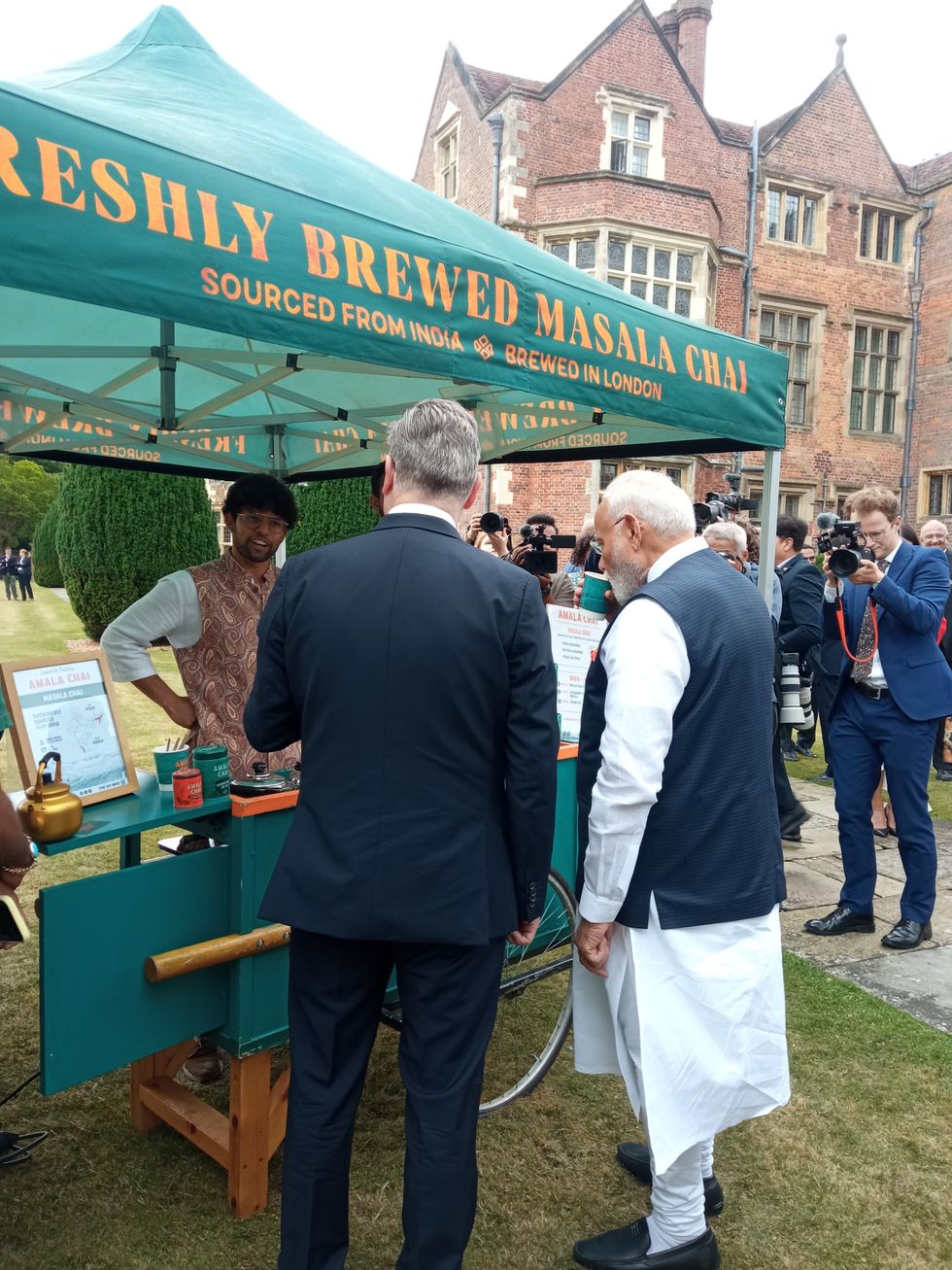
“As Amala Chai grew, I knew sourcing mattered just as much as brewing. I returned to India, travelling through Assam and Kerala to meet farmers and understand their world.
“I discovered a supply chain that was stacked against them — driven by middlemen, low prices, and unsustainable practices. But I also found farmers who cared deeply about their land, their craft, and their communities.
“We built direct relationships with these small-scale farms, paying fairly, investing in organic practices, and supporting a system that puts people and planet first.
“Today, when you sip Amala Chai, you’re part of that story. A supply chain built on fairness and transparency. A brewing method that honours the real tradition of chai. And a simple mission — to bring the rich flavour, warmth, and community of masala chai to every tea drinker.”
Patel certainly talks a good talk but so far as one can tell, he is not thinking of replacing Sir Keir Starmer, just yet.
Back in India, the veteran Congress leader Mani Shankar Aiyar has said he never dismissed Modi as an uneducated “chaiwalla” a few years ago and that his strong belief that the BJP leader was unsuited for the prime minister’s post was not based on his tea-selling past. But Modi cleverly turned the remark by Aiyar – a contemporary of the late Rajiv Gandhi at Cambridge University – to his advantage by depicting the Congress leader as an entitled brat.
